Abstract
As increasing numbers of gonococcal strains obtained in routine isolations from patients show reduced sensitivity to penicillin and as more and more patients report that they are allergic to penicillin, other antibiotics are being increasingly frequently resorted to in the treatment of gonorrhoea. It is therefore of importance to determine the susceptibility of both penicillin-sensitive and relatively ”resistant” strains to these other chemotherapeutic agents.
The authors report on a study of the in vitro action of the following antibiotics against routine gonococcal isolates and strains from gonorrhoea cases in which penicillin had failed to effect a cure: kanamycin, leucomycin, chloramphenicol, dextrosulphenidol, oxytetracycline, chlortetracycline, tetracycline, demethylchlortetracycline and synnematin B. It was found that strains of low penicillin susceptibility were as sensitive to these antibiotics—with the exception of synnematin B—as were those of high penicillin sensitivity.
Emphasis is placed on the need for establishing an international standard procedure for gonococcal sensitivity testing which would make it possible—as it is often not at present—to compare results obtained in different laboratories. The relation between response to treatment and the degree to which patients develop blood and tissue concentrations of penicillin is also discussed.
Full text
PDF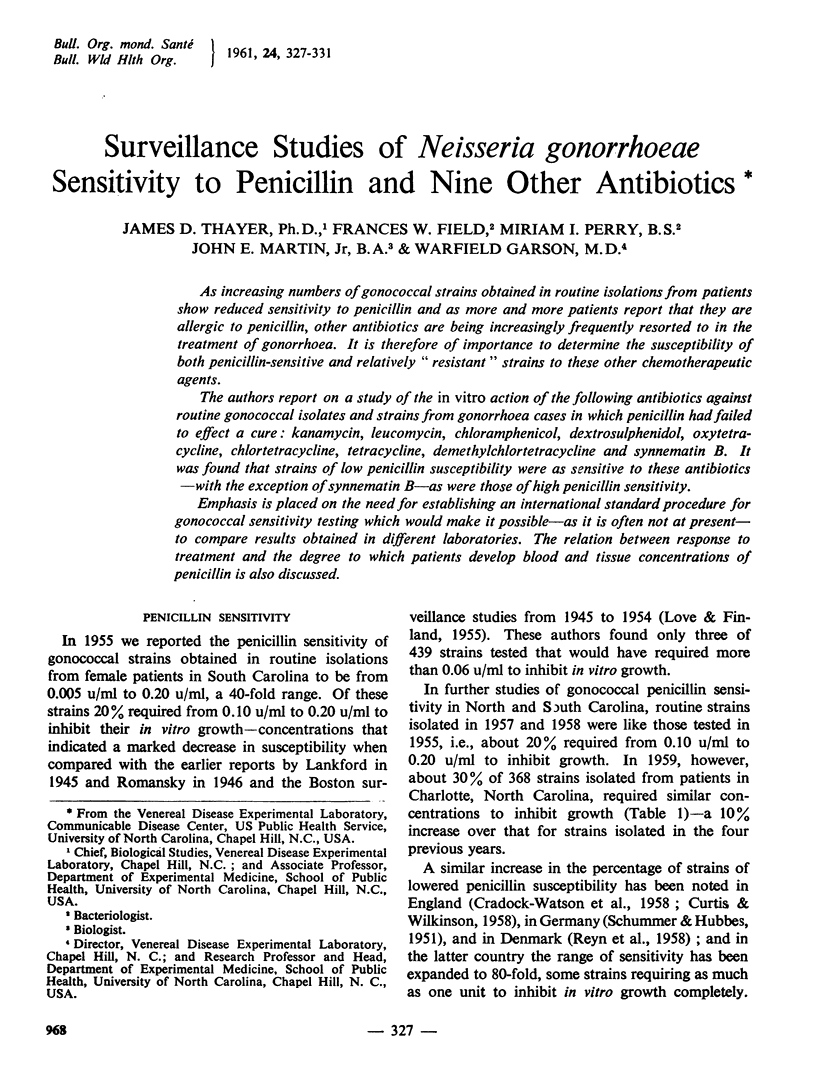
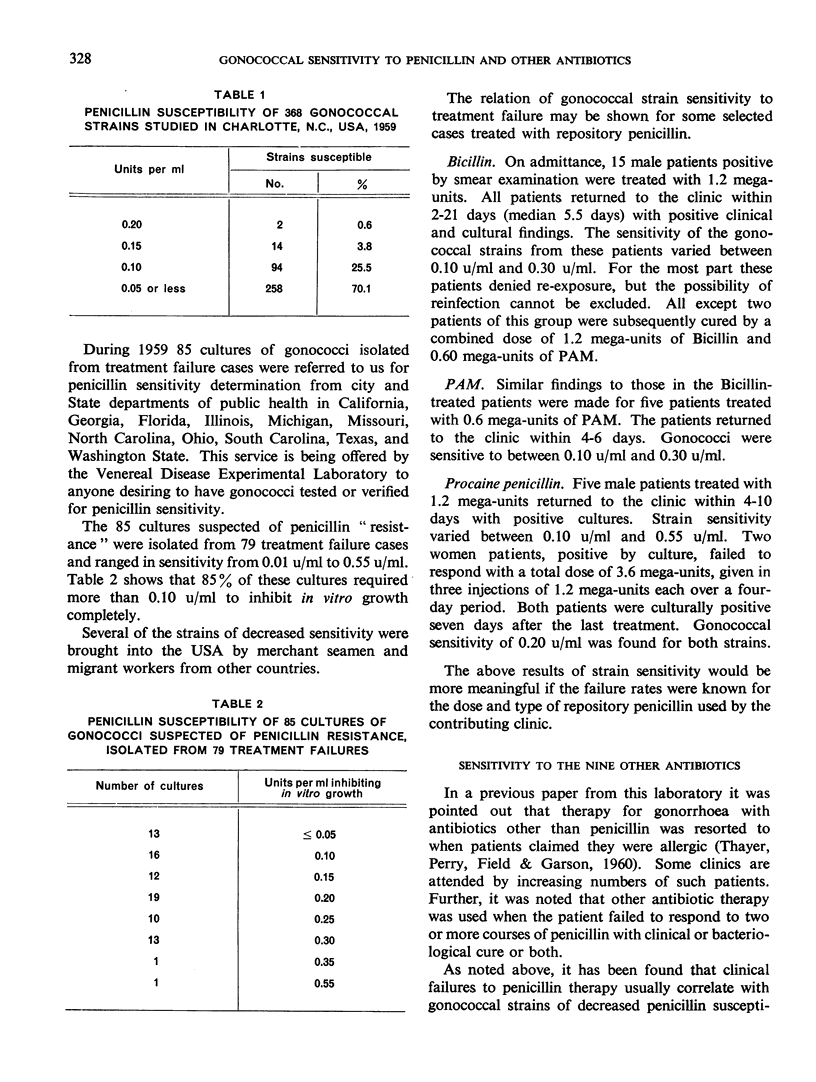
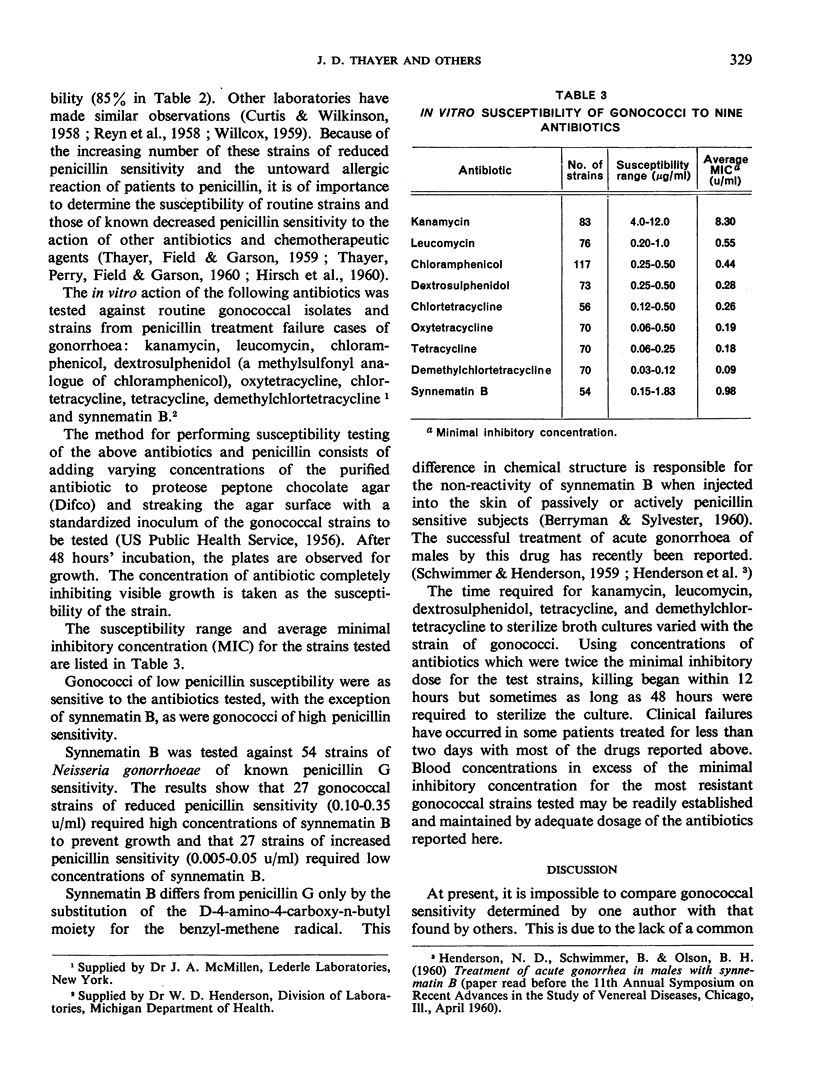
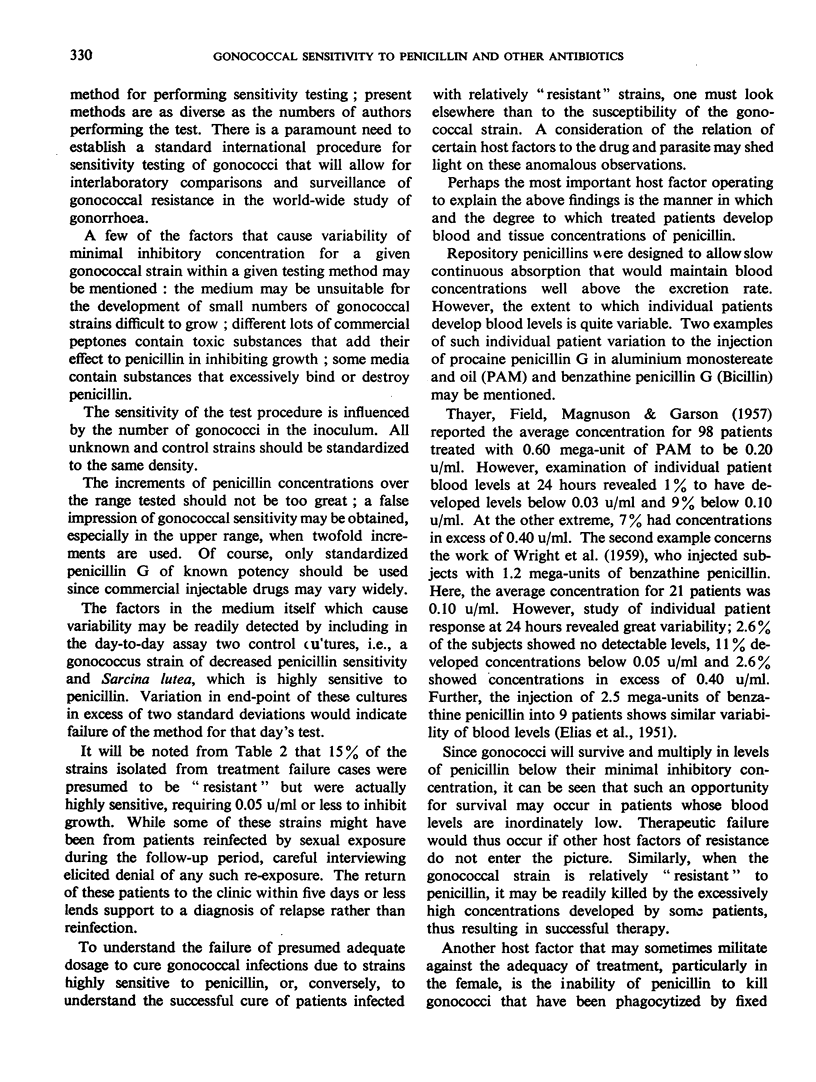
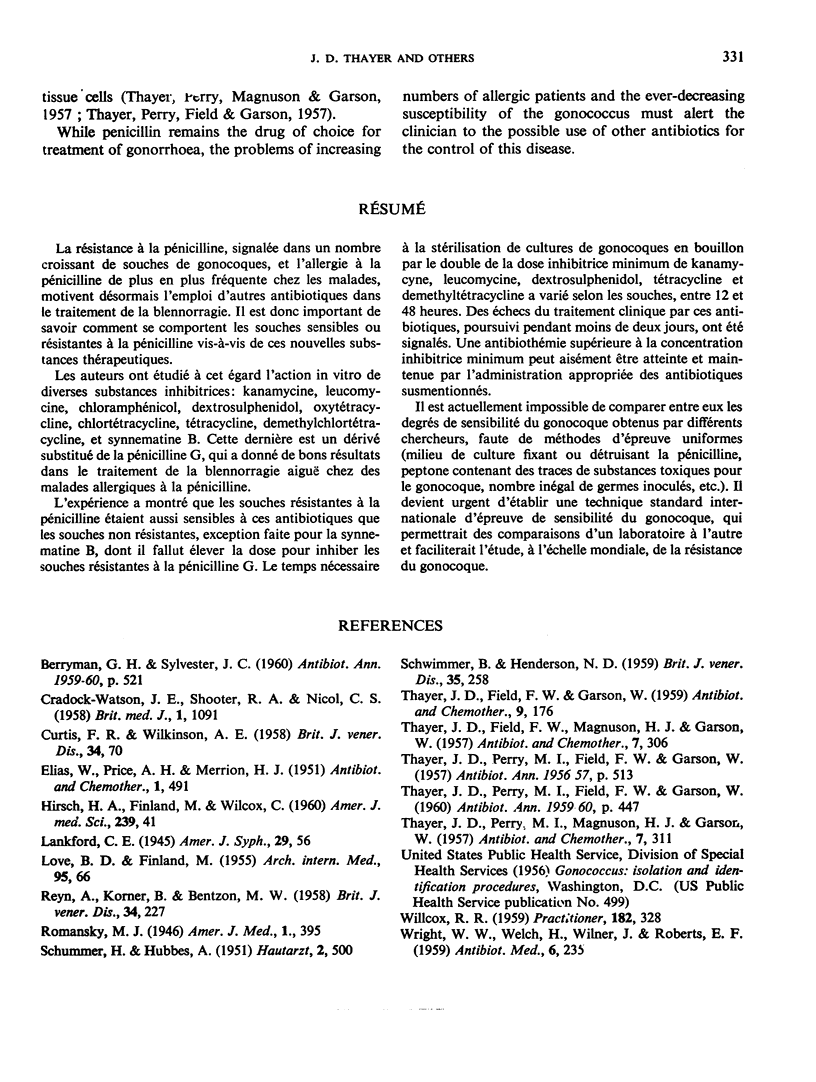
Selected References
These references are in PubMed. This may not be the complete list of references from this article.
- BERRYMAN G. H., SYLVESTER J. C. Influence of chemical structure upon biological properties of penicillin. Antibiot Annu. 1959;7:521–525. [PubMed] [Google Scholar]
- CRADOCK-WATSON J. E., SHOOTER R. A., NICOL C. S. Sensitivity of strains of gonococci to penicillin, sulphathiazole, and streptomycin. Br Med J. 1958 May 10;1(5079):1091–1092. doi: 10.1136/bmj.1.5079.1091. [DOI] [PMC free article] [PubMed] [Google Scholar]
- CURTIS F. R., WILKINSON A. E. A comparison of the in vitro sensitivity of gonococci to penicillin with the results of treatment. Br J Vener Dis. 1958 Jun;34(2):70–82. doi: 10.1136/sti.34.2.70. [DOI] [PMC free article] [PubMed] [Google Scholar]
- HIRSCH H. A., FINLAND M. Susceptibility of gonococci to antibiotics and sulfadiazine. A study of strains isolated at Boston City Hospital from cases of acute gonorrheal urethritis in males, August, 1958 to February, 1959. Am J Med Sci. 1960 Jan;239:41–50. doi: 10.1097/00000441-196001000-00006. [DOI] [PubMed] [Google Scholar]
- LOVE B. D., Jr, FINLAND M. Susceptibility of Neisseria gonorrhoeae to eleven antibiotics and sulfadiazine; comparison of susceptibility of recently isolated strains with results obtained in previous years in the same laboratory. AMA Arch Intern Med. 1955 Jan;95(1):66–73. doi: 10.1001/archinte.1955.00250070082010. [DOI] [PubMed] [Google Scholar]
- REYN A., KORNER B., BENTZON M. W. Effects of penicillin, streptomycin, and tetracycline on N. gonorrhoeae isolated in 1944 and in 1957. Br J Vener Dis. 1958 Dec;34(4):227–239. doi: 10.1136/sti.34.4.227. [DOI] [PMC free article] [PubMed] [Google Scholar]
- SCHWIMMER B., HENDERSON N. D. Synnematin B in the treatment of syphilis and gonorrhoea. A preliminary report. Br J Vener Dis. 1959 Dec;35:258–259. doi: 10.1136/sti.35.4.258. [DOI] [PMC free article] [PubMed] [Google Scholar]
- THAYER J. D., PERRY M. I., FIELD F. W., GARSON W. Failure of penicillin, chloramphenicol, erythromycin, and novobiocin to kill phagocytized gonococci in tissue. Antibiot Annu. 1956:513–517. [PubMed] [Google Scholar]
- THAYER J. D., PERRY M. I., FIELD F. W., GARSON W. The susceptibility of Neisseria gonorrhoeae to kanamycin, leucomycin, chloramphenicol, and dextrosulphenidol. Antibiot Annu. 1959;7:447–450. [PubMed] [Google Scholar]


